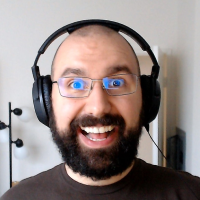I have the following books in my possesion ... In which order should I read them in order to get the best out of them and understand them.
Trying to stick to the question that was asked...
I'd say it depends on how rapidly you intend to read them and how comfortable you are switching between subjects.
The math primer will probably help you with the D3D11 book. If you are looking for something quick, I'd skim through the math book to see what you need to learn and what topics it covers, then go back and forth concurrently with the two. It is easier to learn math if you have actual applications for it, and is easier to learn to manipulate 3D worlds if you know the math. They complement each other. Apply what you learn from one in the other, then go back and review what you learned when reading in the first. It may be helpful to remember the math book has made functions generic. In math books you typically see compressed generic notation like f(M, k), in the programming book you might get Point& ComputeSplineLocation( const Point& v0, const Point& v1, const Point& v2, const Point& v3, float knotPosition); Realizing the math book is trying to teach you the same thing the code describes sometimes takes some mental effort.
I'd read the patterns book before the architecture book, since the architecture book will probably mention the patterns. These two also work well together because architecture relies on patterns to describe the behavior. Patterns are just names for solutions people use frequently. The architecture book describes examples where people used those patterns. Unlike the first pair, I would NOT read these concurrently. I'd read all the pattern book first, study the patterns, and learn their names. Then I would refer back to it as needed when reading the architecture book afterward.
Finally, I like to have multiple books going at the same time, usually 2-3. I'd read the first pair back and forth as though they were a single subject, and when I didn't feel like reading them I'd work through whichever one of the second pair I was studying. Looks like about 3000 pages total? If I were reading them lightly and quickly scanning it shouldn't take more than two weeks. If I were studying deeply and trying to apply the knowledge as you gain it, exercising it in the brain, probably a month or two depending on whatever else was going on at the time. I don't know your schedule or reading speed so it may be faster or slower for you.
The D3D11 book is probably the most time sensitive, so I'd read that first and recognize the most important thing is the general theory, not the specific verbs and nouns for the API. Every new API will have different words for theory, but the math and theory behind it will remain the same. The others could remain on your bookshelf for five years and still be mostly useful.













